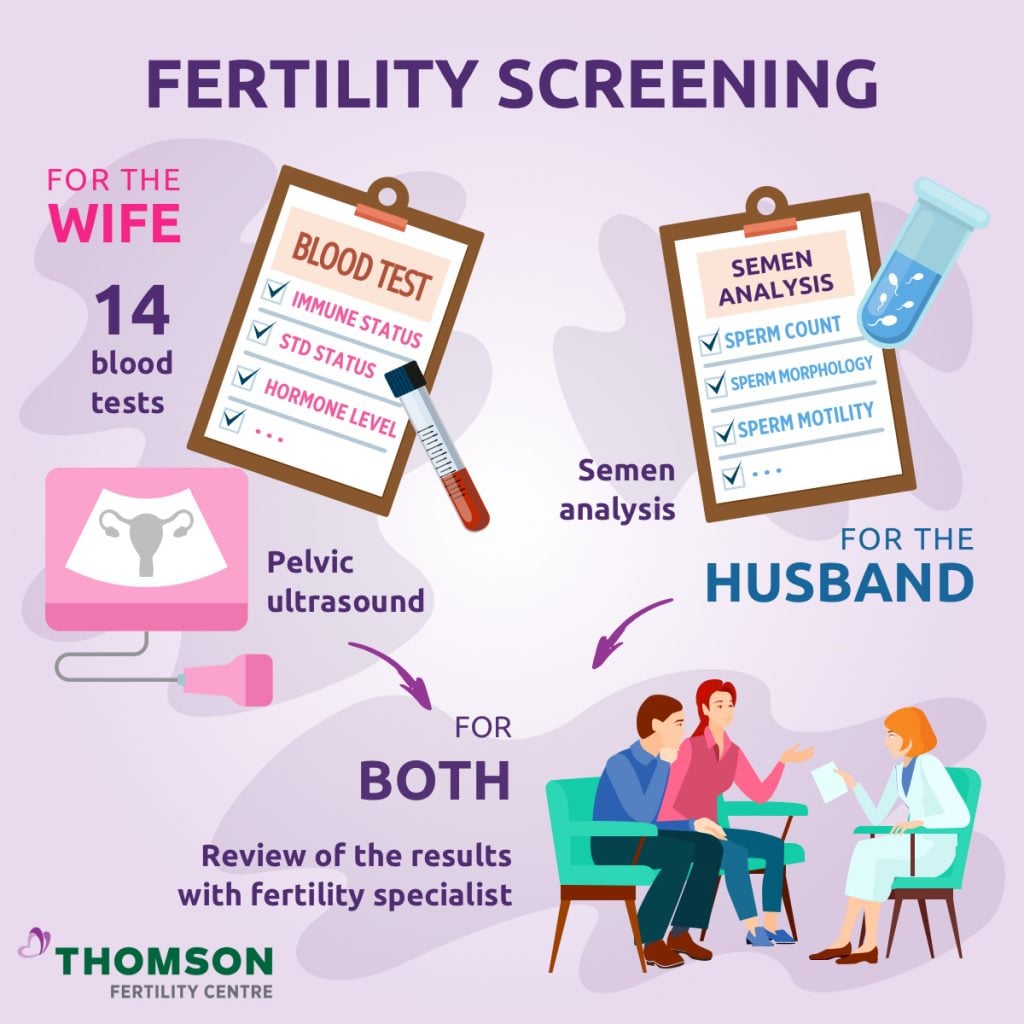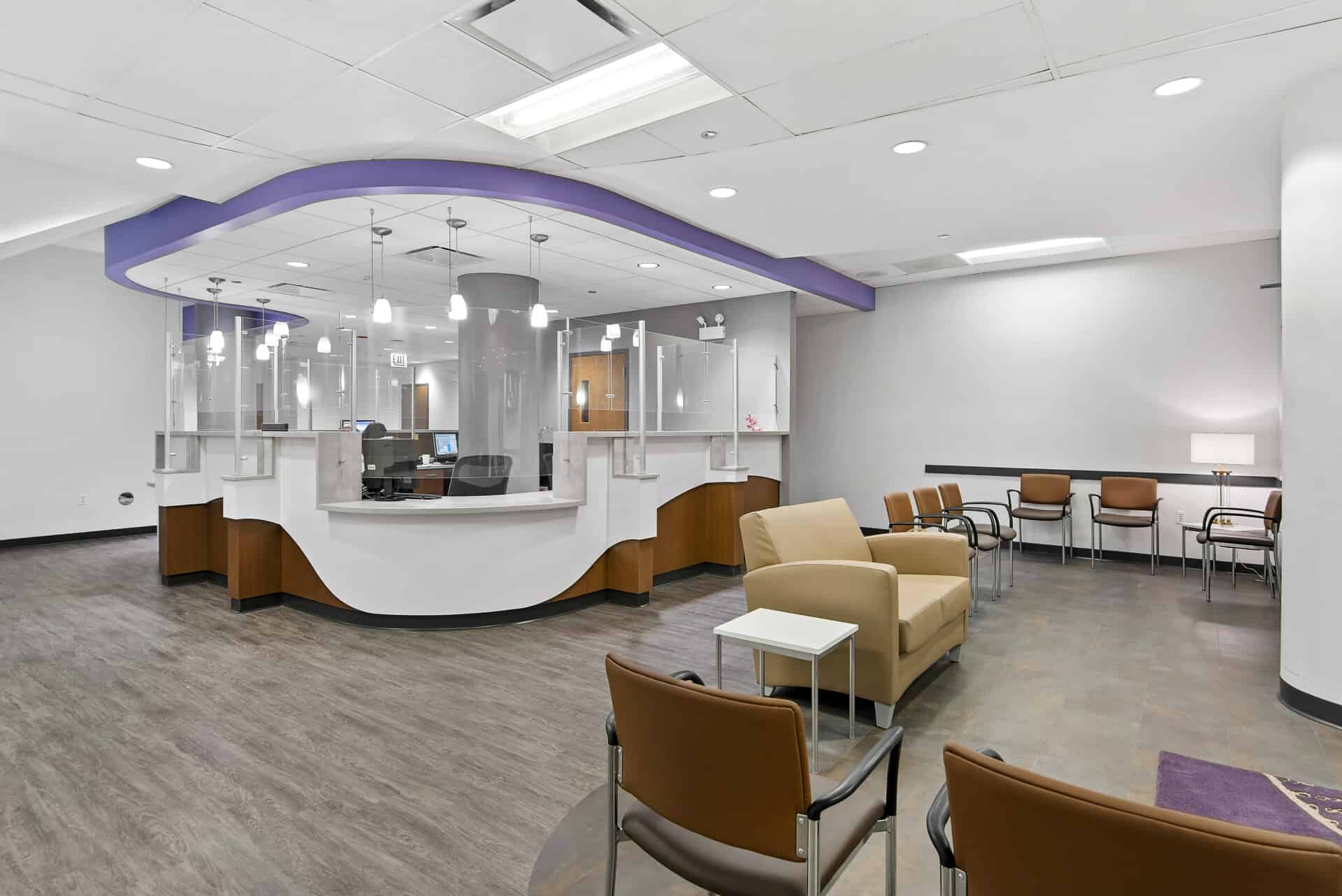Fertility screening in Illinois has become an increasingly important topic for individuals and couples planning their families. With advancements in medical technology and growing awareness about reproductive health, understanding the process, benefits, and options available can significantly impact your journey to parenthood. This article will provide a detailed overview of fertility screening in Illinois, ensuring you have all the necessary information to make informed decisions.
As more people seek to optimize their chances of conception, fertility screening has emerged as a crucial step in the reproductive health journey. It helps identify potential issues early, allowing for timely interventions and treatments. Whether you're a resident of Illinois or considering traveling to the state for fertility services, this guide will equip you with valuable insights.
Throughout this article, we'll delve into the significance of fertility screening, explore the procedures involved, and discuss the benefits and challenges associated with it. By the end, you'll have a clearer understanding of how fertility screening can play a pivotal role in your reproductive health journey.
Read also:New York Boulders A Comprehensive Guide To Climbing Adventures
Table of Contents:
- What is Fertility Screening?
- Why is Fertility Screening Important?
- The Fertility Screening Process
- Cost of Fertility Screening in Illinois
- Benefits of Fertility Screening
- Challenges and Considerations
- Advancements in Fertility Screening Technology
- Insurance Coverage for Fertility Screening
- Resources for Fertility Screening in Illinois
- Conclusion and Next Steps
What is Fertility Screening?
Fertility screening refers to a series of medical tests and evaluations designed to assess an individual's or couple's reproductive health. In Illinois, these screenings are conducted by certified fertility specialists and reproductive endocrinologists who aim to identify potential issues that could affect fertility. The process typically involves both male and female partners, as fertility is a shared responsibility.
Key Components of Fertility Screening:
- Hormone level assessments
- Ovarian reserve testing
- Sperm analysis
- Ultrasound imaging
- Genetic testing
Fertility screening in Illinois is not only about identifying problems but also about providing solutions. With a comprehensive understanding of your reproductive health, you can take proactive steps toward achieving your family goals.
Who Should Consider Fertility Screening?
Individuals and couples who are planning to start or expand their families should consider fertility screening. This is particularly important for those who:
- Are over 35 years old
- Have a history of reproductive health issues
- Have experienced multiple miscarriages
- Are concerned about genetic conditions
Early screening can help address potential concerns and increase the likelihood of successful conception.
Read also:Nutcracker Market Houston A Holiday Extravaganza You Dont Want To Miss
Why is Fertility Screening Important?
Fertility screening plays a critical role in reproductive health by providing valuable insights into an individual's or couple's ability to conceive. By identifying potential issues early, fertility screening allows for timely interventions and treatments, improving the chances of successful conception.
Early Detection of Issues
One of the primary benefits of fertility screening is the ability to detect issues early. Conditions such as polycystic ovary syndrome (PCOS), endometriosis, and low sperm count can significantly impact fertility. Early detection enables healthcare providers to develop personalized treatment plans tailored to your specific needs.
According to the Centers for Disease Control and Prevention (CDC), approximately 12% of women in the United States struggle with infertility. Fertility screening in Illinois can help address these challenges by providing a clear roadmap for treatment and management.
The Fertility Screening Process
The fertility screening process in Illinois typically involves several stages, each designed to assess different aspects of reproductive health. Here's a breakdown of what you can expect:
Initial Consultation
During the initial consultation, you'll meet with a fertility specialist who will discuss your medical history, lifestyle factors, and family planning goals. This is an opportunity to ask questions and gain a better understanding of the screening process.
Diagnostic Tests
Diagnostic tests are a crucial part of fertility screening. These may include:
- Blood tests to measure hormone levels
- Ultrasound imaging to assess ovarian health
- Semen analysis to evaluate sperm quality
Each test provides valuable information that helps paint a complete picture of your reproductive health.
Cost of Fertility Screening in Illinois
The cost of fertility screening in Illinois can vary depending on several factors, including the specific tests required and the clinic you choose. On average, fertility screening packages range from $500 to $1,500. However, some clinics may offer discounted rates for comprehensive screenings.
Factors Affecting Cost:
- Type of tests required
- Location of the clinic
- Insurance coverage
It's essential to discuss costs and payment options with your healthcare provider to ensure you're fully informed about the financial implications of fertility screening.
Benefits of Fertility Screening
Fertility screening offers numerous benefits that extend beyond just identifying potential issues. Here are some of the key advantages:
Peace of Mind
Knowing the state of your reproductive health can provide peace of mind, especially if you're planning to start a family. Fertility screening helps eliminate uncertainty and empowers you to make informed decisions about your reproductive journey.
Personalized Treatment Plans
Based on the results of your fertility screening, healthcare providers can develop personalized treatment plans tailored to your specific needs. This may include lifestyle changes, medication, or assisted reproductive technologies (ART).
A study published in the Journal of Assisted Reproduction and Genetics highlights the effectiveness of personalized treatment plans in improving fertility outcomes.
Challenges and Considerations
While fertility screening offers many benefits, there are also challenges and considerations to keep in mind. Here are some of the key factors:
Emotional Impact
Fertility screening can be an emotional experience, especially if the results reveal potential issues. It's important to have a support system in place, whether it's friends, family, or a therapist specializing in reproductive health.
Time Commitment
The fertility screening process can be time-consuming, requiring multiple visits to the clinic for testing and follow-up appointments. Planning your schedule accordingly can help minimize disruptions to your daily life.
Advancements in Fertility Screening Technology
Advancements in medical technology have significantly improved the accuracy and efficiency of fertility screening. In Illinois, clinics are equipped with state-of-the-art equipment and tools designed to provide comprehensive evaluations.
Genetic Testing
Genetic testing is becoming an increasingly important component of fertility screening. By identifying potential genetic conditions, couples can make informed decisions about their reproductive options, including preimplantation genetic testing (PGT).
According to the American Society for Reproductive Medicine (ASRM), genetic testing can help reduce the risk of passing on inherited disorders to future generations.
Insurance Coverage for Fertility Screening
Insurance coverage for fertility screening in Illinois varies depending on your provider and plan. While some insurance plans offer partial or full coverage, others may exclude fertility-related services. It's important to review your policy carefully and discuss coverage options with your healthcare provider.
Tips for Maximizing Insurance Coverage:
- Review your policy details
- Ask your provider about covered services
- Explore out-of-pocket options if necessary
Many clinics also offer flexible payment plans to help make fertility screening more accessible.
Resources for Fertility Screening in Illinois
Illinois is home to numerous fertility clinics and resources dedicated to supporting individuals and couples on their reproductive health journeys. Here are some of the top resources:
Top Fertility Clinics
- Illinois Fertility Center
- North Shore Fertility
- Reproductive Medicine Associates of Illinois
These clinics offer comprehensive fertility screening services and are staffed by experienced professionals committed to delivering exceptional care.
Conclusion and Next Steps
Fertility screening in Illinois is a vital step in the reproductive health journey, offering valuable insights and empowering individuals and couples to make informed decisions. By understanding the process, benefits, and challenges associated with fertility screening, you can take proactive steps toward achieving your family goals.
Key Takeaways:
- Fertility screening helps identify potential issues early
- It provides personalized treatment plans and peace of mind
- Advancements in technology have improved accuracy and efficiency
We encourage you to take the next step by scheduling a consultation with a fertility specialist in Illinois. Share your thoughts and experiences in the comments below, and don't forget to explore other articles on our site for more information on reproductive health.


